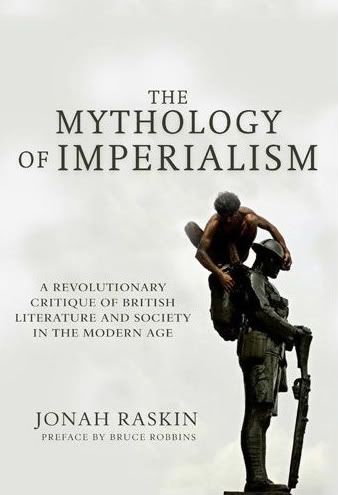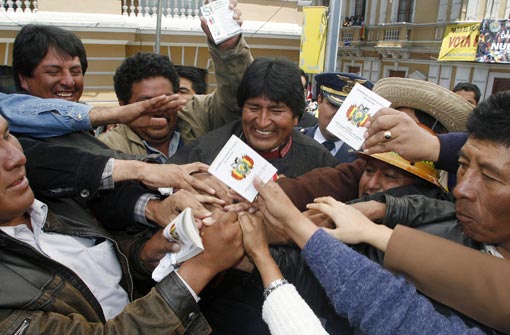For jobs and the environment: Why the workers occupied the Vestas wind turbine plant

Below is the text of a speech written by a Vestas worker for delivery at trade union and environmental movement meetings. It gives an excellent insight into the background of the struggle, and its wider political significance. It first appeared at http://savevestas.wordpress.com. See also ``Capitalism vs the environment: Wind turbine workers fight factory closure with sit-in'' for more coverage.
* * *
I’ve come today to speak about a little factory called St. Cross on the Isle of Wight – otherwise known as Vestas; you may have heard about it before …
Zimbabwe: Interviews -- The struggle for a people-driven constitution

July 25, 2009 -- The first All-Stakeholders' Conference aimed at drafting a new constitution in Zimbabwe was held in Harare on July 13-14. The constitutional reform process is the result of the agreement reached between President Robert Mugabe's Zimbabwe African National Union-Patriotic Front (ZANU-PF) and the Movement for Democratic Change (MDC), when they formed a power-sharing government in February 2009.
The agreement between ZANU-PF and the MDC sets an 18-month timeline for drafting the constitution. It mandates two so-called all-stakeholders’ conferences and national consultation, but the process is controlled by a parliamentary committee. The final draft is to be determined by parliament before going to a referendum.
Many in the pro-democracy movement believe the constitutional reform process is dominated by politicians and will fail to incorporate the demands of ordinary Zimbabweans suffering worst from the country’s social and economic crisis.

July 29, 2009 -- For Pacific islanders, climate change is not a threat looming somewhere in the future. Rising sea levels and unpredictable weather are having devastating effects right now. Climate change has already forced some communities to leave their traditional homes.Simon Butler spoke to two climate change activists from the Pacific about their campaign for immediate cuts to global greenhouse emissions.
Pelenise Alofa Pilitati is the chairperson of the Church Education Directors' Association in Kiribati. Reverend Tafue Lusama is the chairperson of the Tuvalu Climate Action Network. They are on an Australian speaking tour through July and August, which is co-sponsored by Greenpeace and Oxfam. For details of the tour go to http://www.greenpeace.org/australia/news-and-events/events/pacificvoicestour-300609.
* * *
Simon Butler: What are you hoping to achieve with your speaking tour?
The Holocaust: `May history attest to us' -- resistance, collaboration and survival

Hitler’s Priests, by Kevin Spicer, Northern Illinois University Press, 2008, 369 pp. US$34.95
Who Will Write Our History? Emanuel Ringelblum, the Warsaw Ghetto, and the Oyneg Shabes Archive, by Samuel D. Kassow, Indiana University Press, 2007, 523 pP., US$34.95
Kasztner’s Train: the True Story of an Unknown Hero of the Holocaust, by Anna Porter, Scribe, 2008, 548 pp., A$32.95
The Complete Maus: A Survivor’s Tale, Art Spiegelman, Pantheon, 1996, 296 pp., US$35.
Review by Barry Healy
July 28, 2009 -- In October 2008 the Catholic Synod of Bishops convened in Rome for a four-day theological discussion. Without warning, on the first day, Pope Benedict XVI suspended discussion and ordered the 200 participants to attend a special commemoration mass for Pius XII, who was the pope between 1939 and 1958.
Exclusive excerpt from Jonah Raskin's `The Mythology of Imperialism' -- `Kipling's Contrasts'

[With the permission of Monthly Review Press, Links International Journal of Socialist Renewal is making available an exclusive excerpt from Jonah Raskin's The Mythology of Imperialism: A Revolutionary Critique of British Literature and Society in the Modern Age. A PDF file, available to read or download, of Chapter 2, ``Kipling's Contrasts'' is below. Readers of Links International Journal of Socialist Renewal are encouraged to purchase The Mythology of Imperialism from the Monthly Review Press website, click HERE.]
* * *
``We, the readers and students of literature, have been hijacked. The literary critics, our teachers, those assassins of culture, have put us up against the wall and held us captive.”
Cuba -- How the workers and peasants made the revolution

July 26, 2009, marks the 56th anniversary of the guerrilla attack on the Moncada military barracks by revolutionaries led by Fidel Castro in 1953, viewed by Cubans as the start of the revolution. 2009 is also the 50th anniversary year of the triumph of the Cuban Revolution.
Chris Slee, author of Cuba: How the Workers & Peasants Made the Revolution (Resistance Books, 2008), explains how the revolution was made and defended by Cuba’s working people.
[For more coverage of the 50th anniversary of the Cuban Revolution, click HERE.]
* * *
Workers, peasants and students played an active role before, during and after the insurrection that destroyed the brutal and corrupt US-backed Fulgencio Batista dictatorship in January 1959. Batista seized power in a coup in March 1952.
Honduras: Defying regime, Zelaya attempts return; Interview with President Manuel `Mel' Zelaya

By Felipe Stuart Cournoyer
Update, July 24, 2009 -- Today, Honduras has been totally paralysed by a general strike, and Honduran resistance activists and protesters are chanting.
Zelaya - get used to it. The people are rising up
(it rhymes in Spanish).
Also common is the resistenCia, resistenCia, resistenCia, el pueblo unido jamas sera vencido (people united will never be overcome) and so on...
This afternoon Zelaya crossed over the frontier at Las Manos north of Esteli. He stood technically just inside Honduran territory, having crossed the chain separating the two countries in the "neutral" strip between them. Zelaya remained there for about two hours, hoping to meet up with members of his family and others who were trying to join him.
Raúl Prada Alcoreza: Analysis of Bolivia's New Political Constitution of the State

Bolivians celebrate their new constitution. President Evo Morales in centre.
The following article by Raúl Prada Alcoreza was originally published in the first issue (June 2008) of Crítica y Emancipación, a biannual Latin American journal of the social sciences. This translation from the Spanish, by Shana Yael Shubs and Ruth Felder, was published this year in a complete English-language version of the journal’s first issue. It was distributed at the recent congress of the Latin American Studies Association, held in Rio de Janeiro, Brazil, in June. A review of the first issue of Crítica y Emancipación was published at http://tinyurl.com/nuk4jp. This article also appeared at Bolivia Rising.
Melbourne, August 28-29: Latin America Solidarity Conference 2009
* * *
See also the statement by the Korean Confederation of Trade Unions, ``Call to Action: Stop Police Suppression against the Striking workers of Ssangyong Motors!''
* * *
Scroll down for earlier coverage.
Urgent Appeal: Ssangyong Motor workers’ lives in danger! Solidarity urgent!
Monday, August 3, 2009
Korean Metal Workers Union (KMWU)
inter@metal.nodong.org
Dear friends,
We urgently request your solidarity regarding Ssangyong Motor Workers’ dispute. It is urgent for the Korean government to step up and play a role toward a peaceful settlement!
Our union members’ lives are in danger.
Swazis claim their democratic space

By Jan Sithole, general secretary of the Swaziland Federation of Trade Unions
July 16, 2009 -- Ask most people around the world who are not from Swaziland what they know about the country, the most likely response will be a blank stare. Those who have heard of Swaziland are mired in stereotypes about an exotic mountain kingdom.
As a Swazi citizen who was born, brought up and lives in Swaziland, these conjured images bring weary smiles every time I am confronted with them, especially when I am abroad on an assignment representing the trade union movement.
Yes, Swaziland is a beautiful kingdom at the southern tip of the African continent, dotted with mountains and full of exciting flora and fauna and other natural scenery. Yes, Swaziland is very proud of its rich cultural heritage, which includes the famous annual reed dance. And yes our country is so small that it is often barely visible on the African map.
But we are all that and more.
Swaziland, just like the rest of Africa and the global South, is a country grappling with all the contradictions and challenges thrown up by history, globalisation and internal power politics.